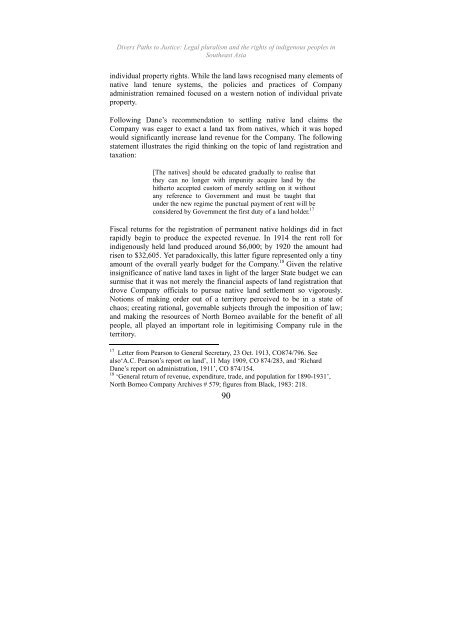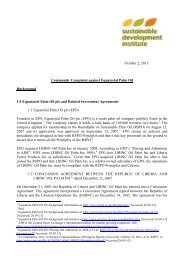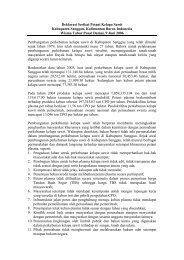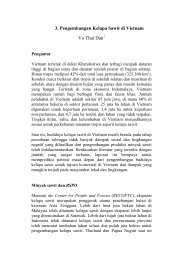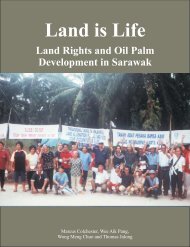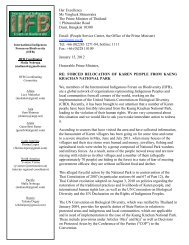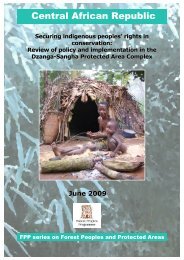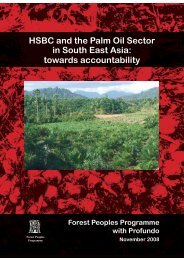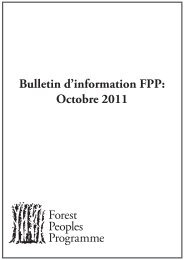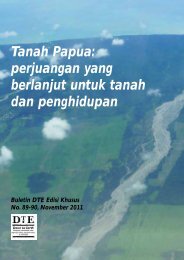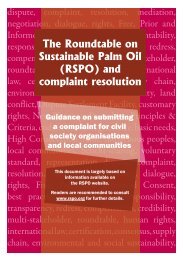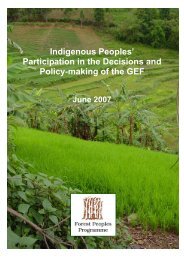Divers Paths to Justice - English - Forest Peoples Programme
Divers Paths to Justice - English - Forest Peoples Programme
Divers Paths to Justice - English - Forest Peoples Programme
You also want an ePaper? Increase the reach of your titles
YUMPU automatically turns print PDFs into web optimized ePapers that Google loves.
<strong>Divers</strong> <strong>Paths</strong> <strong>to</strong> <strong>Justice</strong>: Legal pluralism and the rights of indigenous peoples inSoutheast Asiaindividual property rights. While the land laws recognised many elements ofnative land tenure systems, the policies and practices of Companyadministration remained focused on a western notion of individual privateproperty.Following Dane’s recommendation <strong>to</strong> settling native land claims theCompany was eager <strong>to</strong> exact a land tax from natives, which it was hopedwould significantly increase land revenue for the Company. The followingstatement illustrates the rigid thinking on the <strong>to</strong>pic of land registration andtaxation:[The natives] should be educated gradually <strong>to</strong> realise thatthey can no longer with impunity acquire land by thehither<strong>to</strong> accepted cus<strong>to</strong>m of merely settling on it withoutany reference <strong>to</strong> Government and must be taught thatunder the new regime the punctual payment of rent will beconsidered by Government the first duty of a land holder. 17Fiscal returns for the registration of permanent native holdings did in factrapidly begin <strong>to</strong> produce the expected revenue. In 1914 the rent roll forindigenously held land produced around $6,000; by 1920 the amount hadrisen <strong>to</strong> $32,605. Yet paradoxically, this latter figure represented only a tinyamount of the overall yearly budget for the Company. 18 Given the relativeinsignificance of native land taxes in light of the larger State budget we cansurmise that it was not merely the financial aspects of land registration thatdrove Company officials <strong>to</strong> pursue native land settlement so vigorously.Notions of making order out of a terri<strong>to</strong>ry perceived <strong>to</strong> be in a state ofchaos; creating rational, governable subjects through the imposition of law;and making the resources of North Borneo available for the benefit of allpeople, all played an important role in legitimising Company rule in theterri<strong>to</strong>ry.17 Letter from Pearson <strong>to</strong> General Secretary, 23 Oct. 1913, CO874/796. Seealso‘A.C. Pearson’s report on land’, 11 May 1909, CO 874/283, and ‘RichardDane’s report on administration, 1911’, CO 874/154.18 ‘General return of revenue, expenditure, trade, and population for 1890-1931’,North Borneo Company Archives # 579; figures from Black, 1983: 218.90


